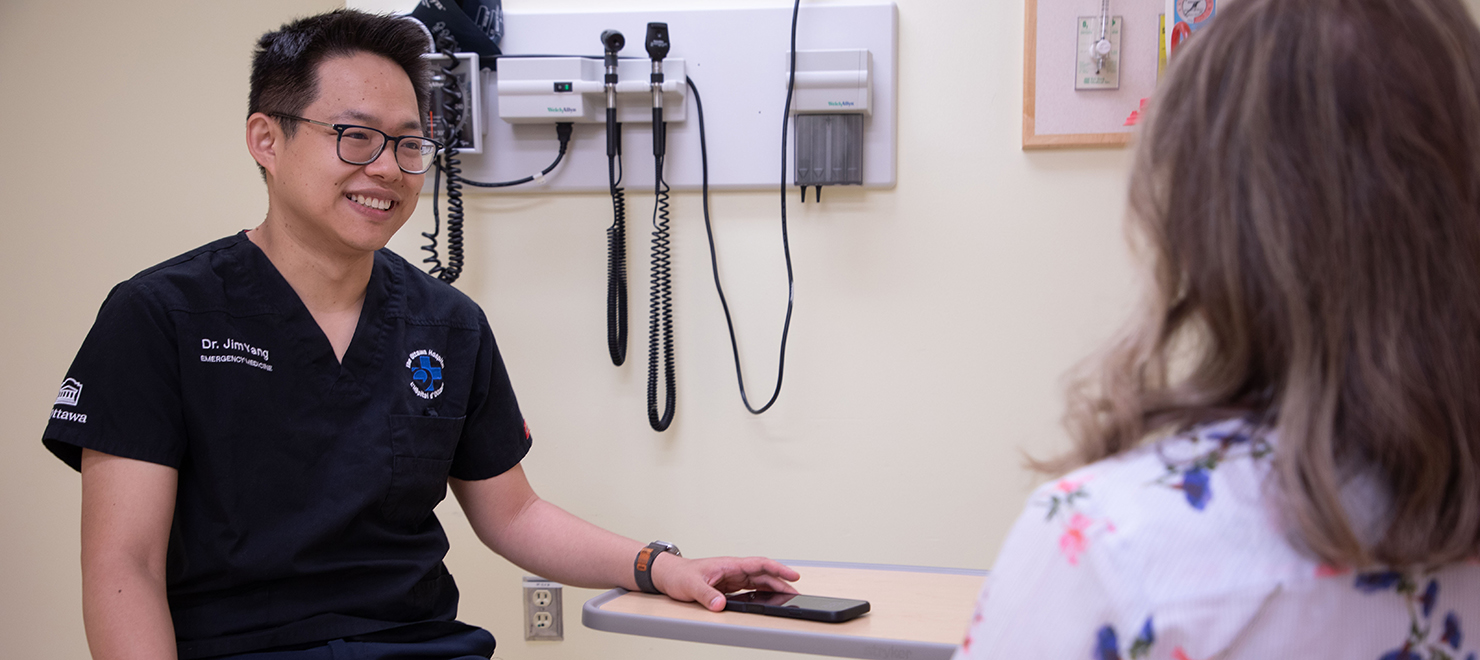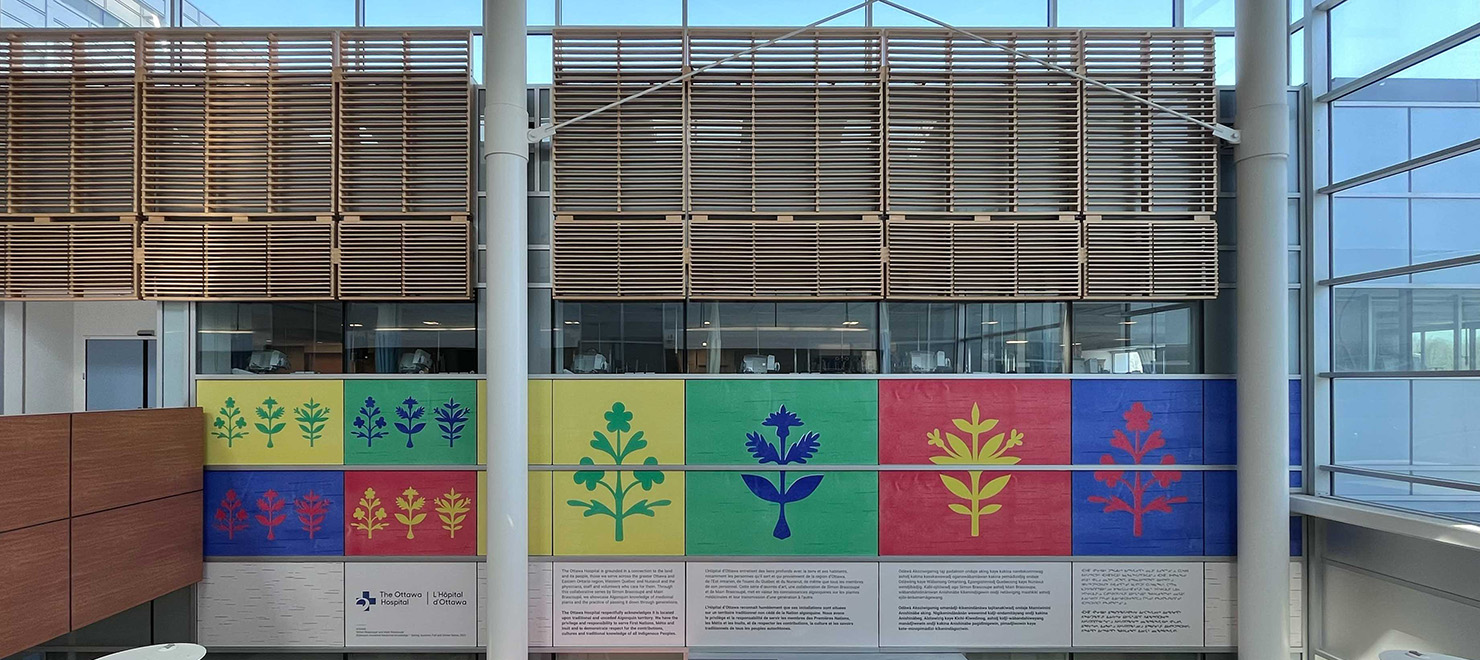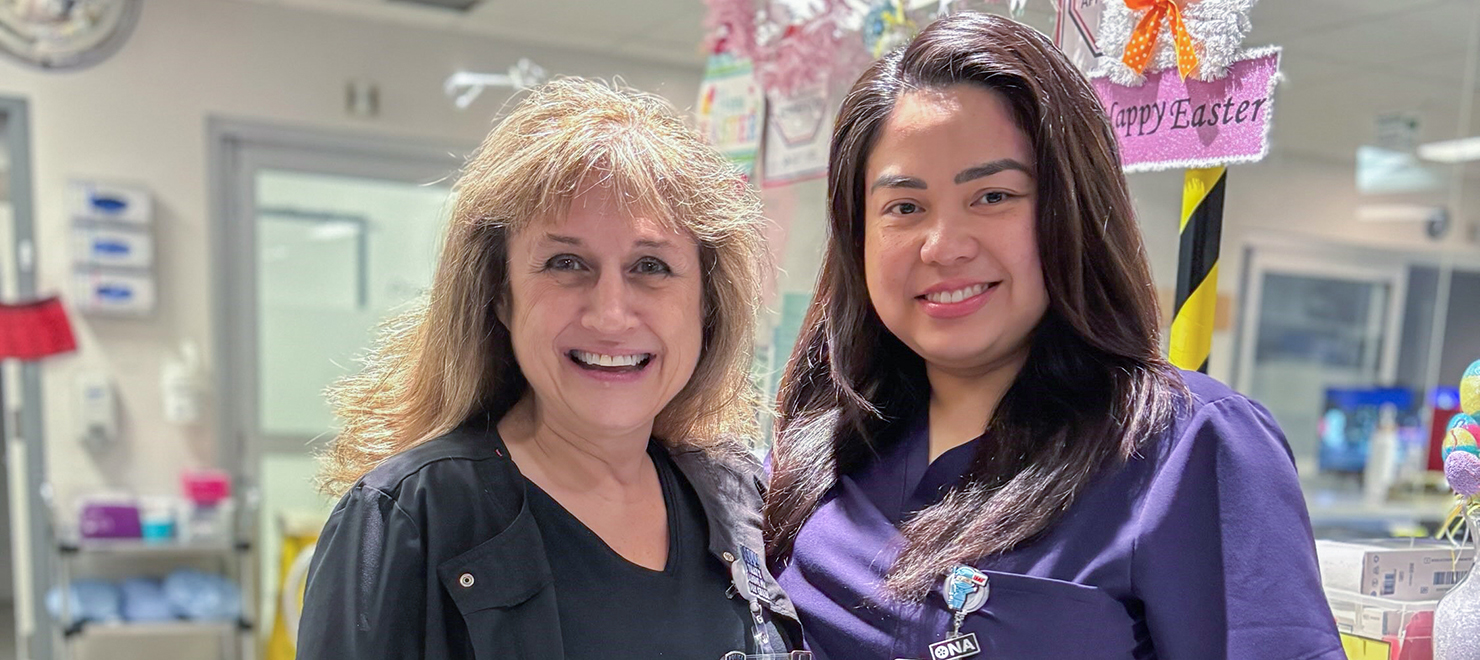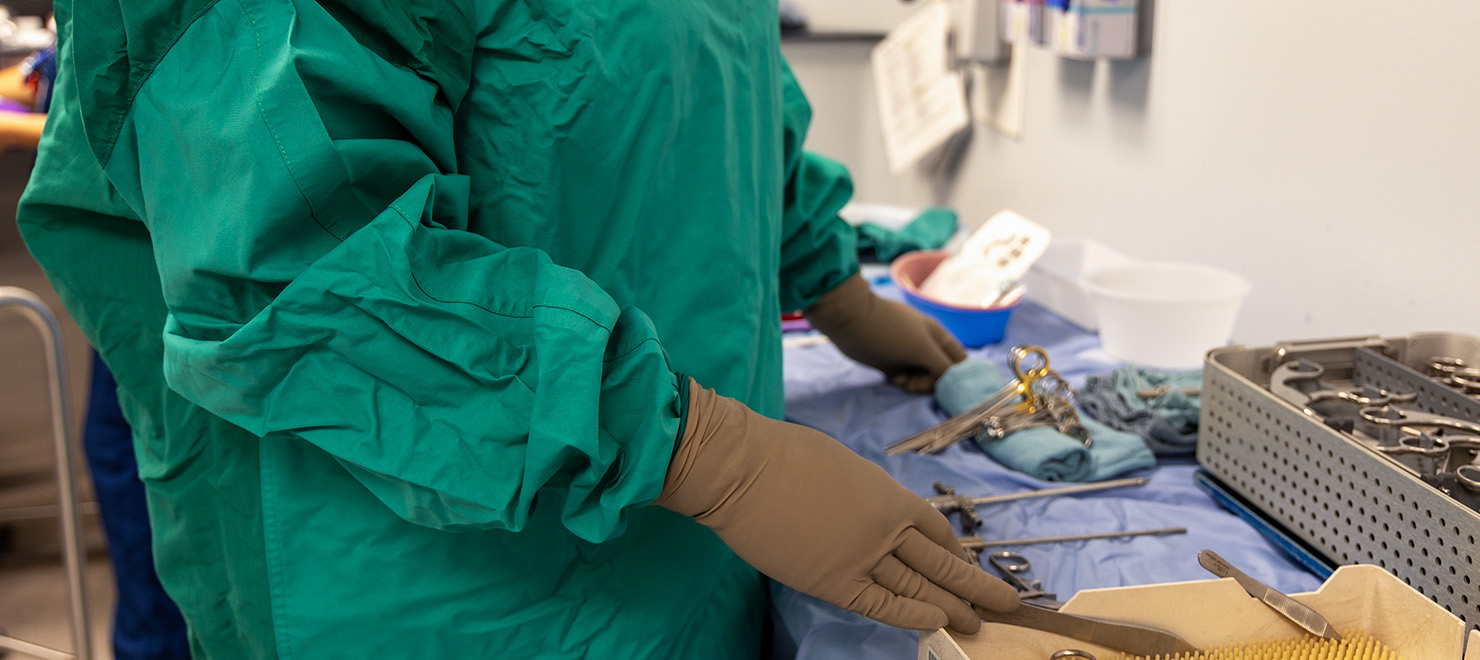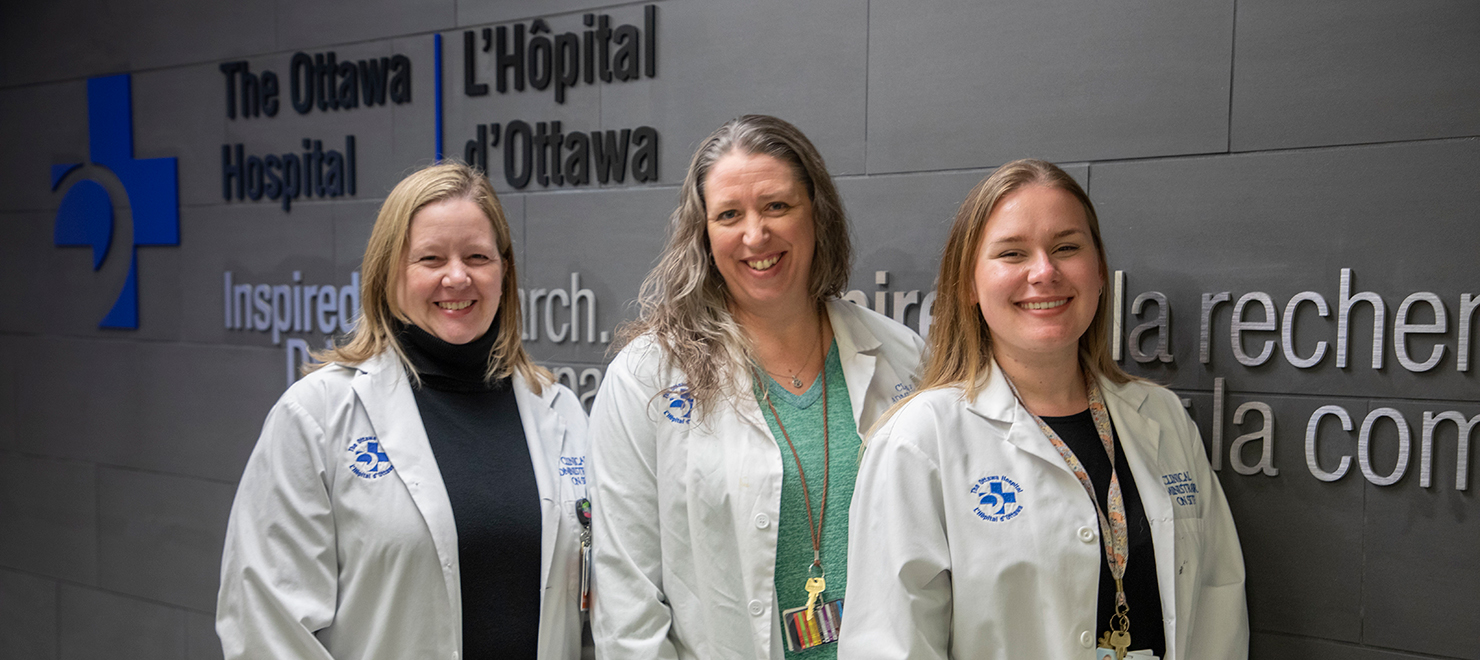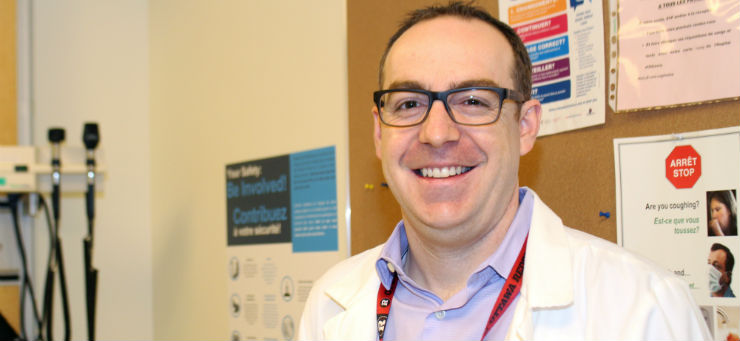
Dr. Pierre Antoine Brown has led the charge to provide a comprehensive, systematic approach to treating cystic renal kidney disease with the new centre of excellence.
Gina Hedges remembers, not long ago, when she had to travel to Toronto just to receive treatment for her polycystic kidney disease. Scheduling appointments with various specialists, each for a different symptom of her illness, was cumbersome and time consuming.
But that’s changing. The Ottawa Hospital is making treatment for those living with cystic renal kidney disease more systematic.
The hospital is now home to the new Cystic Renal Kidney Disease Centre of Excellence – the only centre of its kind in eastern Ontario. It’s a clinic for those with various types of cystic renal kidney disease and will provide more centralized care to patients. It’s also multi-disciplinary, which means patients will have a unique point of entry to access health-care professionals from multiple areas of expertise, including radiologists, urologists, surgeons and others, all in one place.
“Patients living with cystic renal kidney disease can undergo many different forms of treatment, with a variety of health-care professionals, depending on their unique situation,” said Dr. Pierre Antoine Brown, Medical Director for the centre. “We want to give them a single place where they can receive the care they need from a multi-disciplinary health-care team. With a more systematic approach to care, the centre will help improve overall patient experience and outcomes.”
Cystic renal kidney disease is a common cause of chronic kidney disease, and can take many forms. The most common is polycystic kidney disease (PKD), in which patients develop fluid-filled cysts on their kidneys. Over time, these cysts can lead to kidney failure, often resulting in dialysis or transplantation to prolong the quality of life.
Jeff Robertson, Executive Director for the PKD Foundation of Canada, said he thinks this centre is going to make a tremendous difference for patients living with the disease.
“Many of these patients have had to travel to Toronto or Montreal to receive treatment,” said Robertson. “This centre will give them a hometown support on an elite scale, while also bringing together the many levels of care that they receive. It will allow for a direct line of communication between physicians and nephrologist, leading to a better overall experience for patients.”
Not only does Hedges herself live with polycystic kidney disease, but her sister and niece do as well. Unfortunately, her mother passed away from the disease not long after diagnosis.
Patients living with cystic renal kidney disease recognize the need for a more centralized approach to care, and are grateful that the centre will be available. For Hedges, who serves as the volunteer Ottawa Chapter Coordinator for the PKD Foundation of Canada, the new centre means more than just convenience for patients – it gives her hope.
“No longer travelling to multiple areas to see different specialists is one thing,” said Hedges. “Knowing that health-care providers are actively thinking of treatment for this disease makes me hopeful that we are moving forward and evolving treatment. This means the world to patients like me, as well as my family.”
In addition to providing comprehensive and centralized care, the centre will be a hub for research and trials in the field of cystic renal kidney disease. It will join and develop studies and research projects aimed at improving care and outcomes in the future.

Support patient care and research at
The Ottawa Hospital
You might also like…
Less time charting means more time with patients: How The Ottawa Hospital is using AI to support patient care
“I’m seeing and treating more patients.” Find out how DAX Copilot, a powerful AI assistant, is helping our physicians cut down on paperwork, improve their own well-being and spend more time with patients.
A guide to services at The Ottawa Hospital for Indigenous patients and families
At The Ottawa Hospital, we are committed to providing culturally safe care for First Nation, Inuit and Métis patients and families. We are working with Indigenous partners to identify ways we can make your time in hospital more welcoming. Here are some of the ways we’re doing that now.
Novice nurses and their mentors learn and grow together
Discover how mentorships at The Ottawa Hospital facilitate a smoother transition into practice for novice nurses, allow experienced nurses to hone their leadership skills, and play a crucial role in retaining nurses from both generations.
New reusable surgical gowns a step towards greener operating rooms
The Ottawa Hospital is finding safe, innovative ways to reduce medical waste in its operating rooms by using more environmentally sustainable products.
“Crash testers”: Preparing our health-care teams for real-life emergencies
Swapping patients for manikins, our Simulation Patient Safety Program recreates medical emergencies right in our hospital, allowing our care teams to “crash test” their responses to cardiac arrests, respiratory failures, mass casualty events and more. Dive into this Q&A for a closer look at how this training program enhances patient safety and quality of care.
Meet the team that brings CAOS every night
Don’t let the CAOS team’s name fool you. Find out how these nighthawks help make sure everything runs smoothly at our campuses and satellite sites after hours.


 To reset, hold the Ctrl key, then press 0.
To reset, hold the Ctrl key, then press 0.
